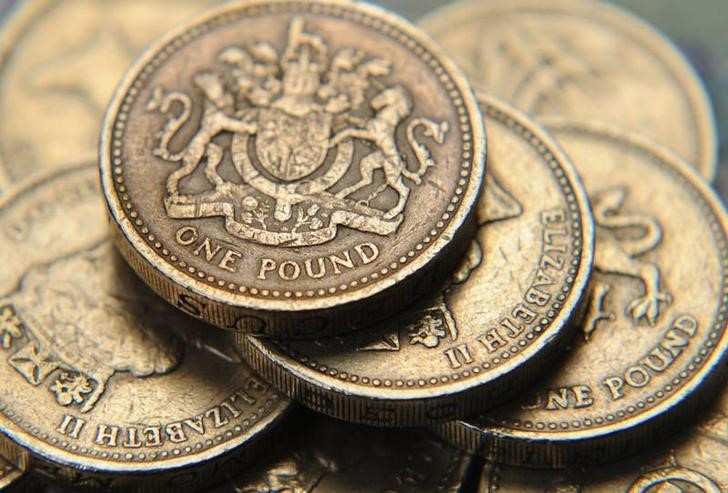By Ritvik Carvalho
LONDON (Reuters) - Sterling dropped on Wednesday after a projection by polling company YouGov showed Britain's ruling Conservative party falling short of an overall majority in the June 8 national election.
The euro ticked lower as traders awaited inflation data for further clues on economic recovery in Europe, while the dollar recovered some ground against the yen.
The pound fell nearly half a percent in Asian trade to $1.2788, approaching the one-month low of $1.2775 touched on Friday. It was last down 0.3 percent at $1.2813
New constituency-by-constituency modeling by YouGov showed the Conservative Party might lose 20 of the 330 seats it holds while the opposition Labour Party could gain nearly 30 seats. This would see Prime Minister Theresa May losing her 17-seat working majority.
Several opinion polls have shown a narrowing lead for the Conservatives, shaking confidence among investors in an election victory read as strengthening May's hand in Brexit talks next month.
"To the extent to which this cautious, value-chasing long sterling position has been caused by the prospect of ... a higher Tory majority - this investment premise is now fading," said Petr Krpata, currency strategist with ING in London.
YEN
The dollar recouped losses after touching a 12-day low versus the safe-haven yen on Tuesday, when investors turned cautious over political worries in Europe as well as weaker stock and commodity markets after a long U.S. holiday weekend.
The greenback, which fell to 110.665 yen on Tuesday, last traded up 0.1 percent at 110.90 yen, staying within recently traded ranges.
Investors' concerns that investigations into President Donald Trump's ties with Russia could hamper his administration's progress on tax cuts and other promised stimulus measures have undermined the dollar in recent weeks.
The dollar index (DXY) which measures the greenback against a basket of peers, edged up 0.1 percent to 97.367, holding well above last week's 6-1/2-month low of 96.797.
Consumer spending in the United States recorded its biggest increase in four months in April and monthly inflation rebounded, pointing to firming domestic demand that could allow the Federal Reserve to raise interest rates in June.
But some market participants say signs of softness in some economic data have raised questions about whether the Fed can hike interest rates two more times this year and begin shrinking its balance sheet.
The euro was off 0.1 percent at $1.1183
Investors continue to await clues from the European Central Bank on whether it will wind down its bond purchase program this autumn as planned in light of signs that the eurozone economy is improving. But ECB President Mario Draghi on Monday repeated the need for "substantial" stimulus.
"The main scenario is that the ECB will eventually taper its stimulus, although Draghi has given no hints about this as of now, and that is weighing on the euro," said Ayako Sera, senior market economist at Sumitomo Mitsui Trust.
